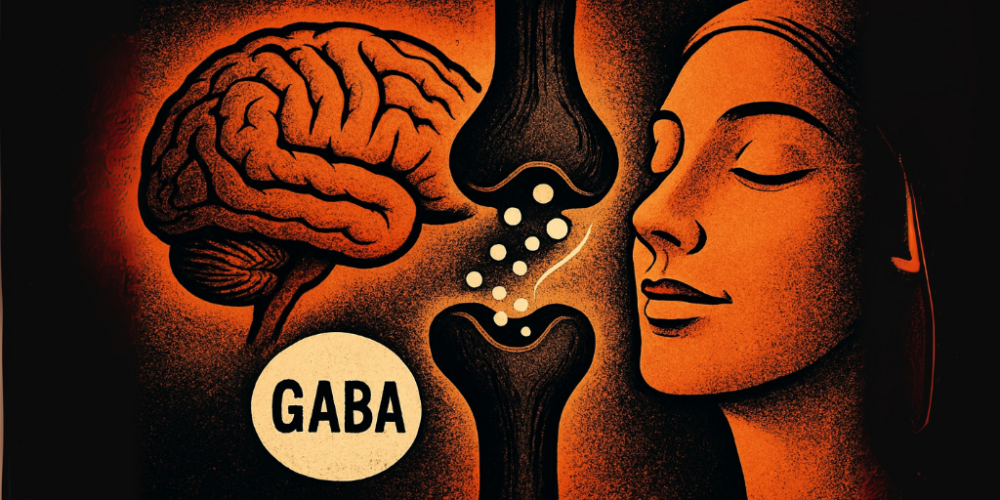
Ashwagandha has become super popular lately, and for good reason. It seems to help a lot with stress and anxiety, and might even make you perform better physically and mentally. But, like with anything, there can be downsides. This article will go into the possible side effects of Ashwagandha so you know what to look out for if you decide to try it.
📌My Experience with Ashwagandha

I’ve been using Ashwagandha on and off for about five years now. When I first started taking it, it felt like a miracle. My stress levels went way down, my mood got better, and I even felt stronger at the gym. But I haven’t taken it every day for a long time now. The main reason is that when I use it for too long, I start to notice some side effects. It’s a bummer, but it happens.
It seems I’m not the only one who’s had this experience. My friend Lucas talked about some of the side effects he ran into. He actually had a pretty rough time with Ashwagandha. My experience has been mostly good, but I still wanted to write this article, to talk about all the known side effects so you know what to watch out for if you’re thinking about taking it daily.
To explain this, I’ll break down how Ashwagandha works in your body and then link those actions to the specific side effects they might cause. Let’s get into it.
➡️Ashwagandha and Thyroid Hormones

One of the main things Ashwagandha does is increase your thyroid hormone levels. For many people, this can be a good thing. Higher thyroid hormones can mean your body uses glucose better, you have more energy, and maybe even build more muscle. But if your thyroid hormone levels are already good, increasing them even more can lead to some problems. These include feeling nervous, having a fast heart rate, and trouble sleeping.
Why does this happen? Well, thyroid hormones boost your body’s energy production and generally make your nervous system more active. So, if you push those levels too high, you might end up with a fast heart rate, nervousness, and insomnia.
People who already have high thyroid hormone levels or those on a low-carb diet are especially at risk for these side effects. Thyroid hormones are used to process glucose, so if you’re not eating much glucose, there’s a higher chance of these thyroid-related side effects popping up. A simple way to try and avoid this is to eat more carbs, which might help with some of these issues.
It’s also worth noting that some studies show Ashwagandha can actually mess with your body’s own thyroid hormone production. Ashwagandha directly tells your thyroid gland to make more hormones, but it can also tell your pituitary gland to stop releasing the hormone that usually triggers thyroid production. It’s kind of like how anabolic steroids can stop your body from making its own testosterone. So, if you plan on taking Ashwagandha for a long time, this is definitely something to keep an eye on.
➡️Ashwagandha and GABA Receptors

Another way Ashwagandha works is by affecting something called the GABA-A receptor. This is one of the main reasons Ashwagandha can help you sleep better and feel less anxious. It might even help with testosterone production. But there are some side effects here too, like feeling tired or overly calm.
Here’s why: GABA is a calming neurotransmitter. When you increase its activity, especially through the GABA-A receptor, you’ll feel less anxious and stressed. However, if your GABA signaling is already good, you might end up feeling sluggish or too sedated.
People who are already taking other calming substances like L-theanine, taurine, lemon balm, or valerian are more likely to experience these side effects. One way to try and lessen these effects is to take compounds that work on something called NMDA receptors, like D-aspartic acid and creatine. Glutamate is kind of the opposite of GABA; it’s an exciting neurotransmitter. NMDA is the main receptor that glutamate binds to. So, by taking things like D-aspartic acid and creatine, which are known to work on this receptor, you might be able to balance out some of the negative effects of over-stimulating your GABA receptors.
➡️Ashwagandha and Serotonin Signaling

Next up, Ashwagandha can increase serotonin signaling. It does this by increasing the number of serotonin receptors and possibly even boosting overall serotonin levels. This is one of the main ways Ashwagandha can help with feelings of sadness or low mood. But if your serotonin signaling is already good, there are some side effects to be aware of, mainly something called anhedonia.
Anhedonia is when you lose motivation, pleasure, and even your sex drive. This often happens because when serotonin signaling goes way up, dopamine signaling tends to go way down. Dopamine is what makes you feel motivated and makes things feel good. So, when dopamine is too low, you might lose interest in things you usually enjoy. This is definitely a side effect to keep in mind.
One way to try and avoid this is to take things that help your body make dopamine, like phenylalanine, tyrosine, and Mucuna pruriens. If you do experience anhedonia, it’s really important to stop taking Ashwagandha right away. But if you’re still taking it and want to try and prevent this from happening, taking dopamine precursors can be a good idea.
➡️Ashwagandha and Adrenaline Receptors

Ashwagandha can also affect your adrenaline receptors. Adrenaline, like dopamine, is a very motivating chemical. So, for people feeling down, Ashwagandha might help improve those feelings. But because adrenaline is such a strong chemical, there are a few side effects to watch out for: nervousness, a fast heartbeat, and trouble sleeping.
It probably goes without saying, but when adrenaline levels go up, your energy and motivation increase. However, you also risk feeling a bit anxious, having trouble sleeping, and a fast heart rate. So, if your adrenaline levels or signaling are already good, you’re more likely to experience these side effects.
One of the best things to remember here is to time your Ashwagandha dose carefully, especially if you’re trying to use it for better sleep. I think it’s best to take Ashwagandha in the mid to late afternoon. If you take it in the morning, you might blunt your natural morning cortisol spike too much, which could leave you feeling tired for the rest of the day. And if you take it in the evening, it might mess with your sleep. So, the afternoon seems to be a good middle ground for most people. Taking it in the mid-afternoon can help you avoid some of the sleep problems that might come from taking Ashwagandha too late in the day.
➡️Ashwagandha and Cortisol Suppression

Finally, let’s talk about Ashwagandha’s ability to reduce and strongly suppress cortisol. This is the main way Ashwagandha helps reduce stress and is also one of the reasons it might increase testosterone. However, it’s important to remember that if you lower cortisol too much, you can actually suppress your body’s natural stress response and end up feeling tired.
Many people find that when they take Ashwagandha for too long, they just feel super fatigued. A big reason for this is that they’re suppressing their cortisol too much. While chronically high cortisol isn’t good and can lead to chronic stress symptoms, your body still needs cortisol for proper stress responses. So, when you combine this with Ashwagandha’s ability to increase GABA and serotonin signaling, there’s a real risk of Ashwagandha leading to what I call the “gray effect.” This is where you lose motivation and pleasure in things you usually enjoy.
This is one of the major side effects to keep in mind when taking Ashwagandha. Even though there are ways to try and lessen these side effects, if you do run into them, it’s really important to stop using it and take frequent breaks from supplementing.
✅Key Takeaways
- Ashwagandha is generally not considered liver toxic. While there are a few case studies trying to link Ashwagandha use to liver problems, the connection is very weak and usually involves extremely high doses. Many studies actually show Ashwagandha can protect the liver. Anything in extremely high doses can be hard on your liver. Even too much caffeine can cause serious issues. So, the dose definitely matters, and with Ashwagandha, in proper and responsible amounts, it seems to be somewhat liver protective.
- There’s no one-size-fits-all approach to Ashwagandha. Some people take it for a very long time and never have any side effects, while others notice side effects on their first day. So, it’s clear Ashwagandha isn’t for everyone.
- However, many people can benefit from it. This is why I’m a big fan of getting blood tests done before you start trying specific supplements. Blood testing gives you a good idea of whether a particular supplement might be right for you.
Source: Nutrition Library

